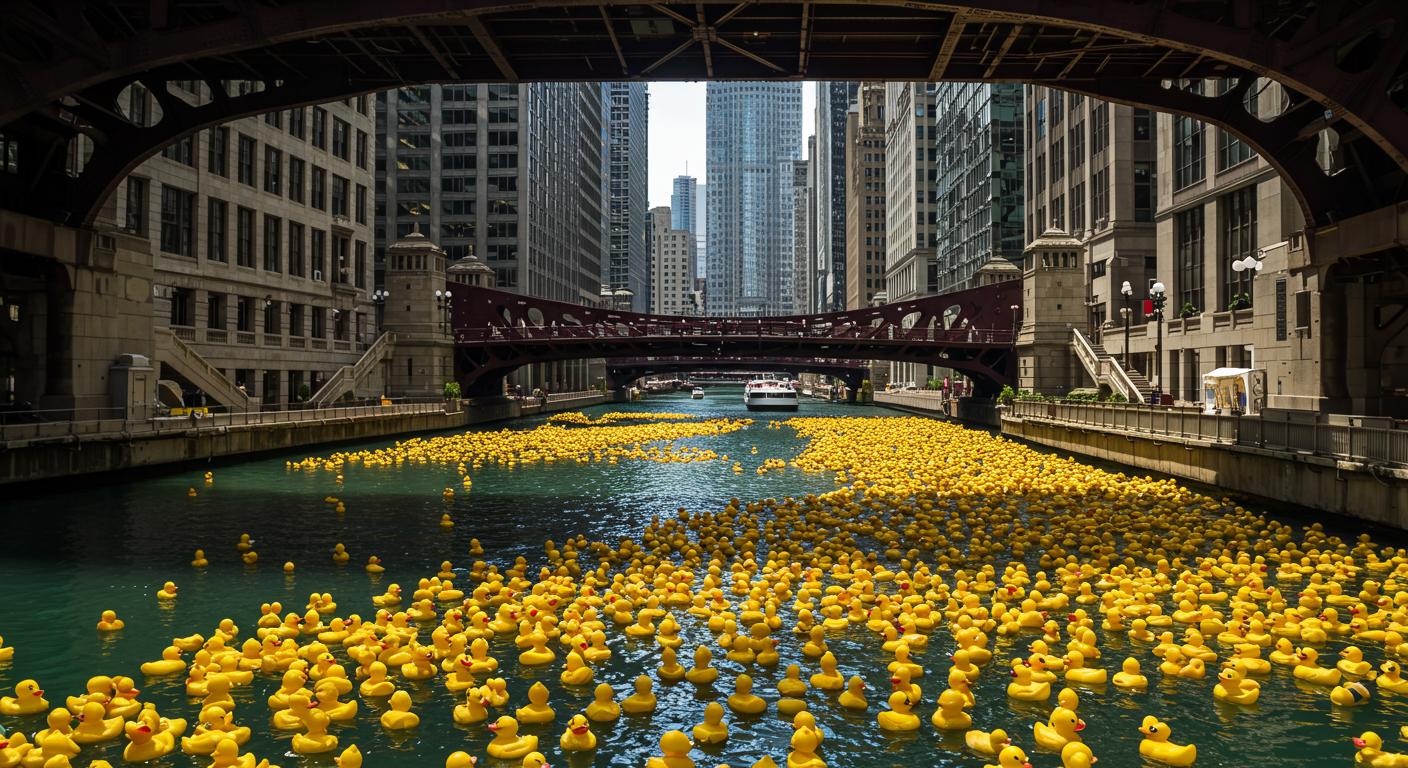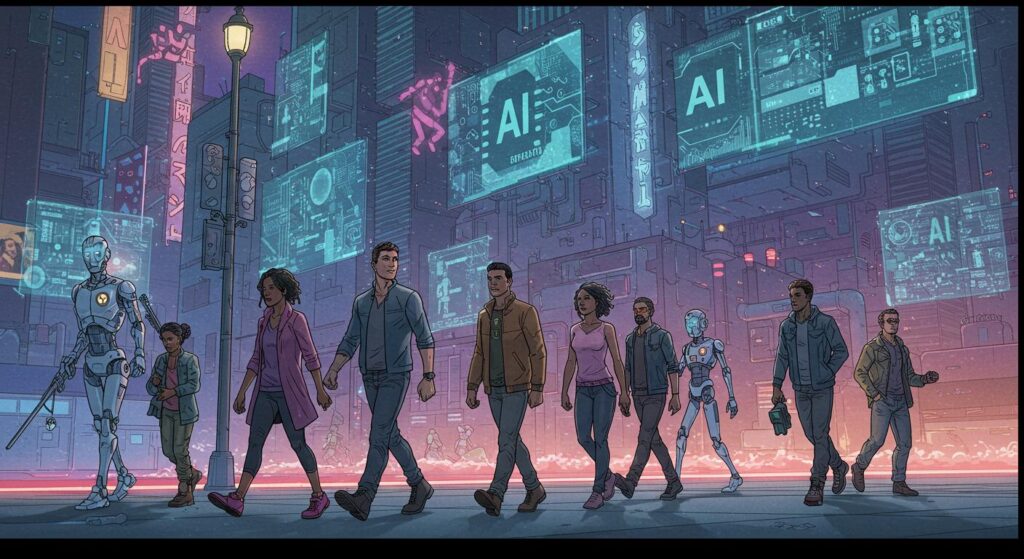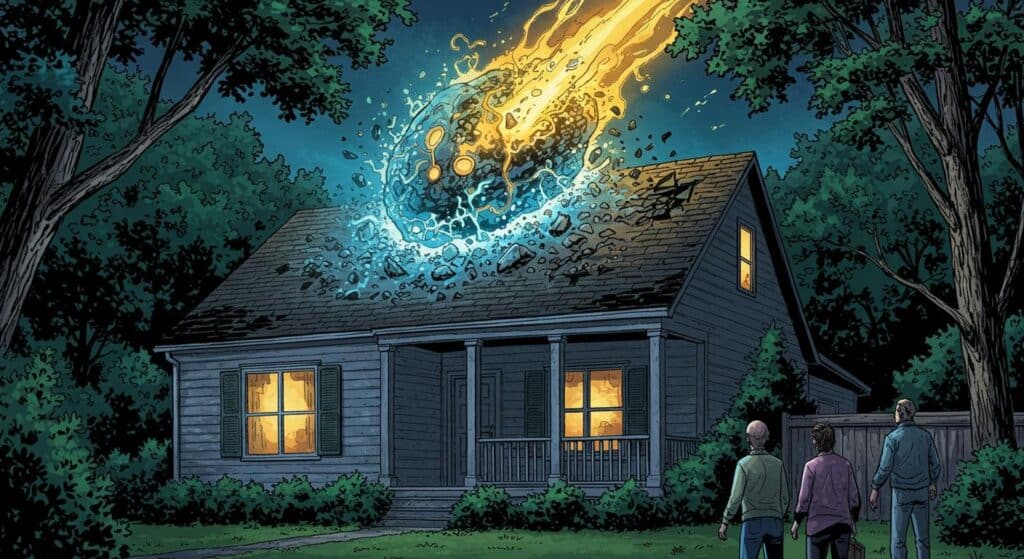If you thought Chicago’s chief traffic woes revolved around expressway backups or navigating Lower Wacker, think again. As UPI reports, the Chicago River just hosted a traffic jam unlike any other: an engineered migration of 82,000 rubber ducks, drifting downstream not by accident, but by grand design—and all for a good cause.
82,000 Yellow Travelers and a Wave of Generosity
This year marked the 20th iteration of the Chicago Ducky Derby, and with more than 82,000 ducks taking the literal plunge from the Columbus Drive Bridge into the river, the visual alone could give an ornithologist an existential moment. According to ABC7 Chicago, the official splashdown was at 1 p.m., but the festivities kicked off hours earlier at Pioneer Court on Michigan Avenue with games, food trucks, souvenirs, photo opportunities, and music, all in support of Special Olympics Illinois.
The rules are simple, if peculiar: for a $10 donation, one could “adopt” a duck, with each entry offering a shot at prizes ranging from a Chevy Trailblazer SUV, to $2,500 in cash, to coveted Cubs W Club tickets. It’s the sort of lottery where your odds might be counted in ducks-per-dollar rather than Powerball numbers. In a detail highlighted by both ABC7 Chicago and UPI, this waddling army helped raise nearly $600,000 for the Special Olympics, illustrating how small gestures (and toy waterfowl) can combine into something genuinely impactful.
Event infrastructure seems almost as impressive as the fundraising total. ABC7 Chicago points out that longtime Special Olympics athlete Zach Coppel took on the role of official Duck Ambassador for the day’s race, while Illinois Secretary of State Alexi Giannoulias served as honorary race marshal—undeniably a step up from your average ribbon-cutting. That so many people and officials converge over artificial ducks might prompt one to ask: does Chicago have a higher tolerance for the delightfully absurd, or simply a well-oiled system for turning the surreal into regular civic programming?
The Mechanics of Mayhem (and Order)
As documented by UPI, no duck is left behind—organizers retrieve all 82,000-plus floaters once the race concludes and stash them away for next year’s Derby. (A side note for oceanographers: unlike the infamous Friendly Floatees, this fleet is strictly landlocked and destined for annual reuse, not global adventure.) Add in live music, food, and ample photographic evidence, and it’s clear this event is as much about urban camaraderie and spectacle as it is about fundraising.
Pete Beale-DelVecchio, president and CEO of Special Olympics Illinois, explained to both outlets that each $10 adoption directly supports an array of programs fostering growth, personal development, and leadership for individuals with intellectual disabilities. It’s an earnest purpose tucked inside a scene that borders on the preposterous—a civic scale model of fun meeting philanthropy, with a fluorescent yellow color palette.
Floating Toward Reflection
Only in Chicago can the river’s annual parade shift from St. Patrick’s green dye to a bobbing carpet of rubber ducks, with spectators betting on their well-numbered favorites in pursuit of a car, cash, or baseball glory. As ABC7 Chicago notes, when the final duck crosses the watery finish line, city crews gather up the lot for storage until next August, ensuring the streets (and rivers) are ready for the city’s next bout of oddity.
Events like the Chicago Ducky Derby highlight the city’s rare knack for blending the earnest with the absurd—a communal wink followed by a round of genuine applause. Could you witness 82,000 rubber ducks paddling down the Chicago River and not wonder what else we could achieve if we applied this level of creativity and enthusiasm to other urban “traffic” problems? There’s every sign that sometimes, the best lane-closers aren’t road repairs or construction—but an unexpected flood of floating, optimistic ducks.







